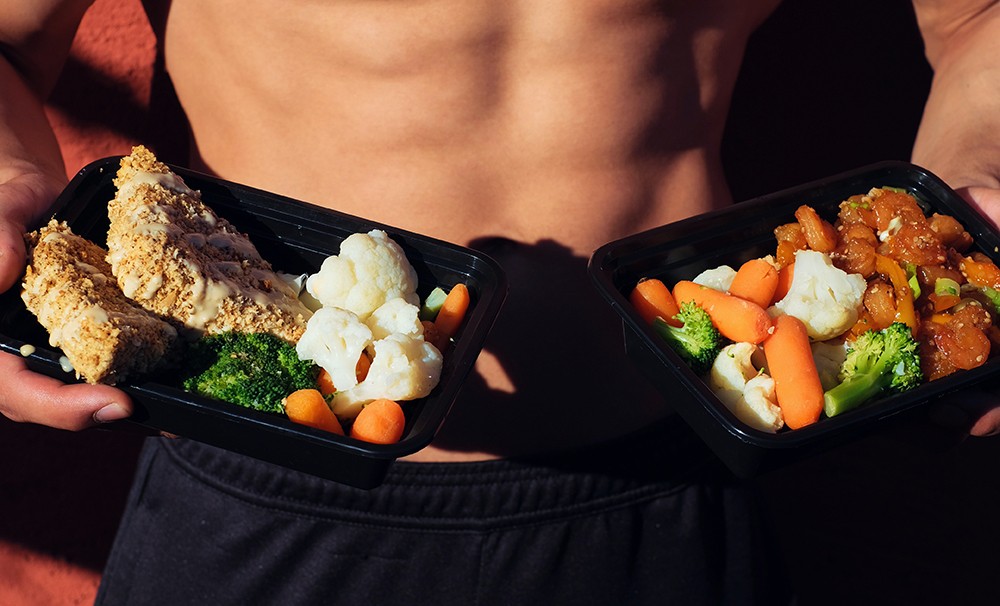
Protein is an essential nutrient. It is responsible for multiple functions in your body, these include building tissue, cells and muscle, as well as synthesising hormones and anti-bodies.
For those of you who do endurance sports or weight training an increase in protein intake would be beneficial. Also, as you get older, you might benefit from an increase in protein because it helps to minimise the muscle loss associated with aging.
How much protein should you eat per day?
- Most people need a daily dose of around 0.8-1g of protein per 1kg of body weight
- Weightlifters and strength athletes 1.4 – 2g of protein per kg of body weight
- 1.2-1.6g of protein per kg of body weight per day for endurance athletes. After exercise, protein is particularly important for muscles to recover and grow.
- Your muscles are particularly receptive to protein synthesis within 30 minutes of exercise, protein consumption therefore is recommended during this period.
High protein foods
You can get protein from both plant and animal sources - here are some of the best protein food sources:
Eggs
Eggs are among the healthiest and most nutritious foods on the planet. They are a great source of protein, vitamins, minerals, healthy fats and antioxidants.
Egg whites are almost pure protein.
Almonds
Almonds are loaded with important nutrients, including fibre, vitamin E, manganese and magnesium.
Chicken Breast
Chicken breast is one of the most popular protein-rich foods.
Oats
Oats are among the healthiest grains on the planet. They are loaded with healthy fibres, magnesium, manganese, thiamin (vitamin B1). Oats are also great for balancing cholesterol levels.
Cottage Cheese
Cottage cheese tends to be very low in fat and calories. It is high in calcium, phosphorus, selenium, vitamin B12, riboflavin (vitamin B2) and various other nutrients.
Greek Yoghurt
Greek yoghurt is low is fat and is high in protein. Regular full-fat yogurt (24% of calories) and kefir (40%).
Milk
Milk is particularly high in calcium, phosphorus and riboflavin (vitamin B2).
Broccoli
Broccoli is a potent source of phytochemicals with vitamin C, vitamin K, fibre and potassium. Calorie for calorie, it is high in protein compared to most vegetables.
Lean Beef
Lean beef is very high in protein, iron, vitamin B12 and numerous other nutrients.
Fish
Fish is a great source of protein, iron and omega 3 fatty acids.
Originally published on Apr 16, 2018








